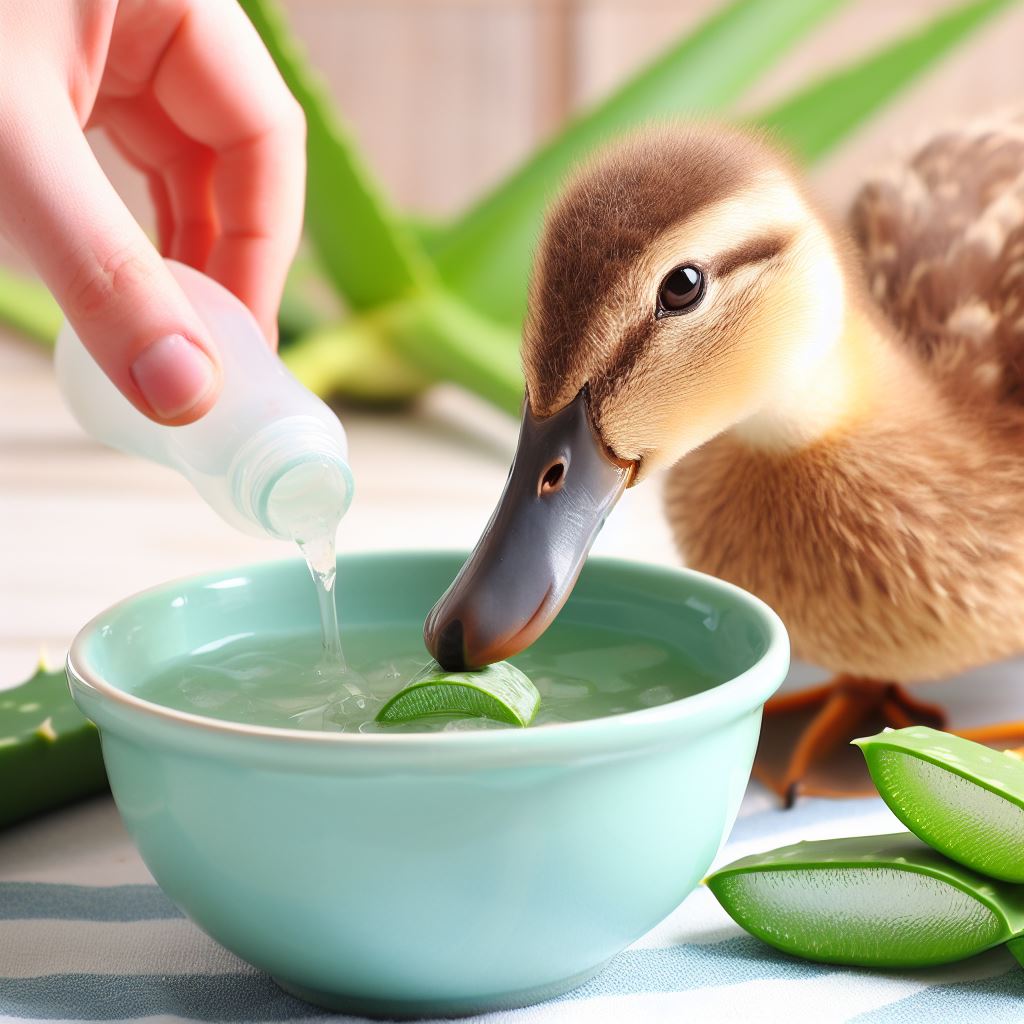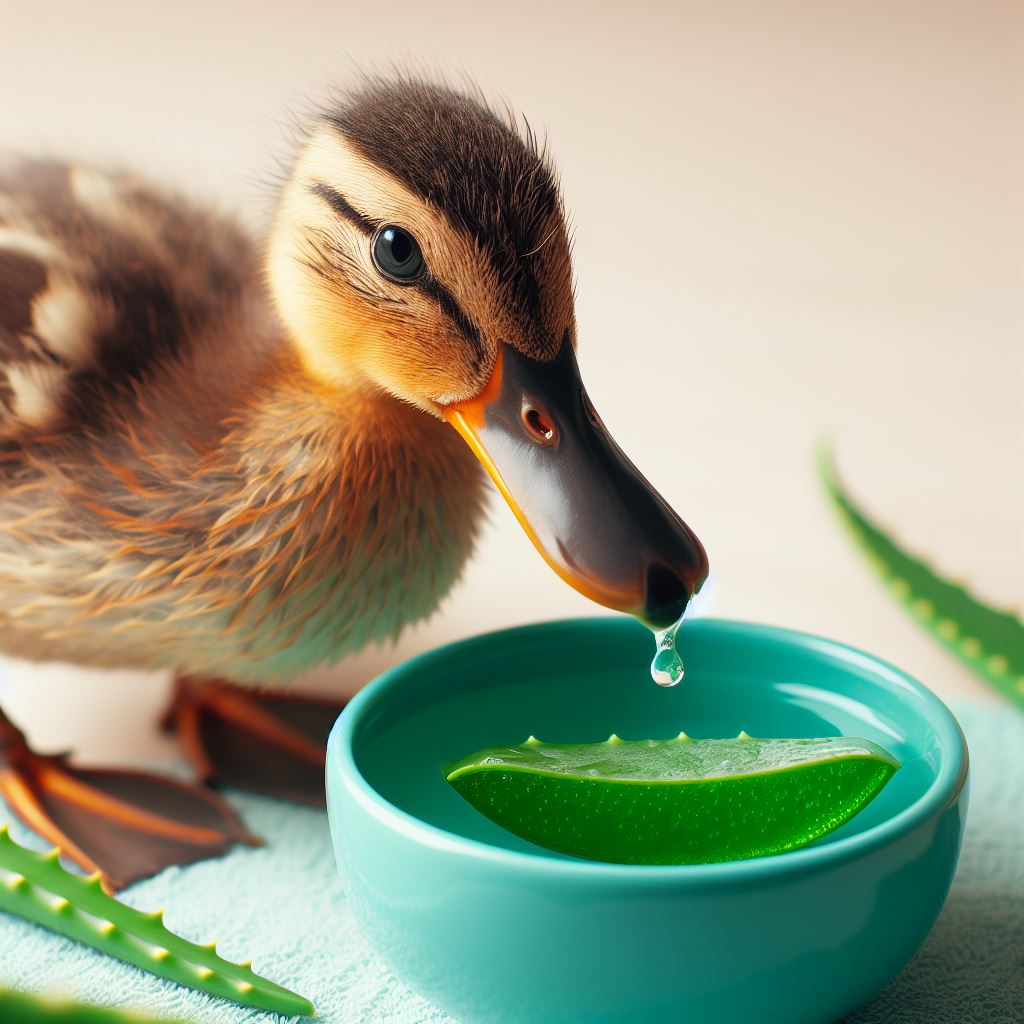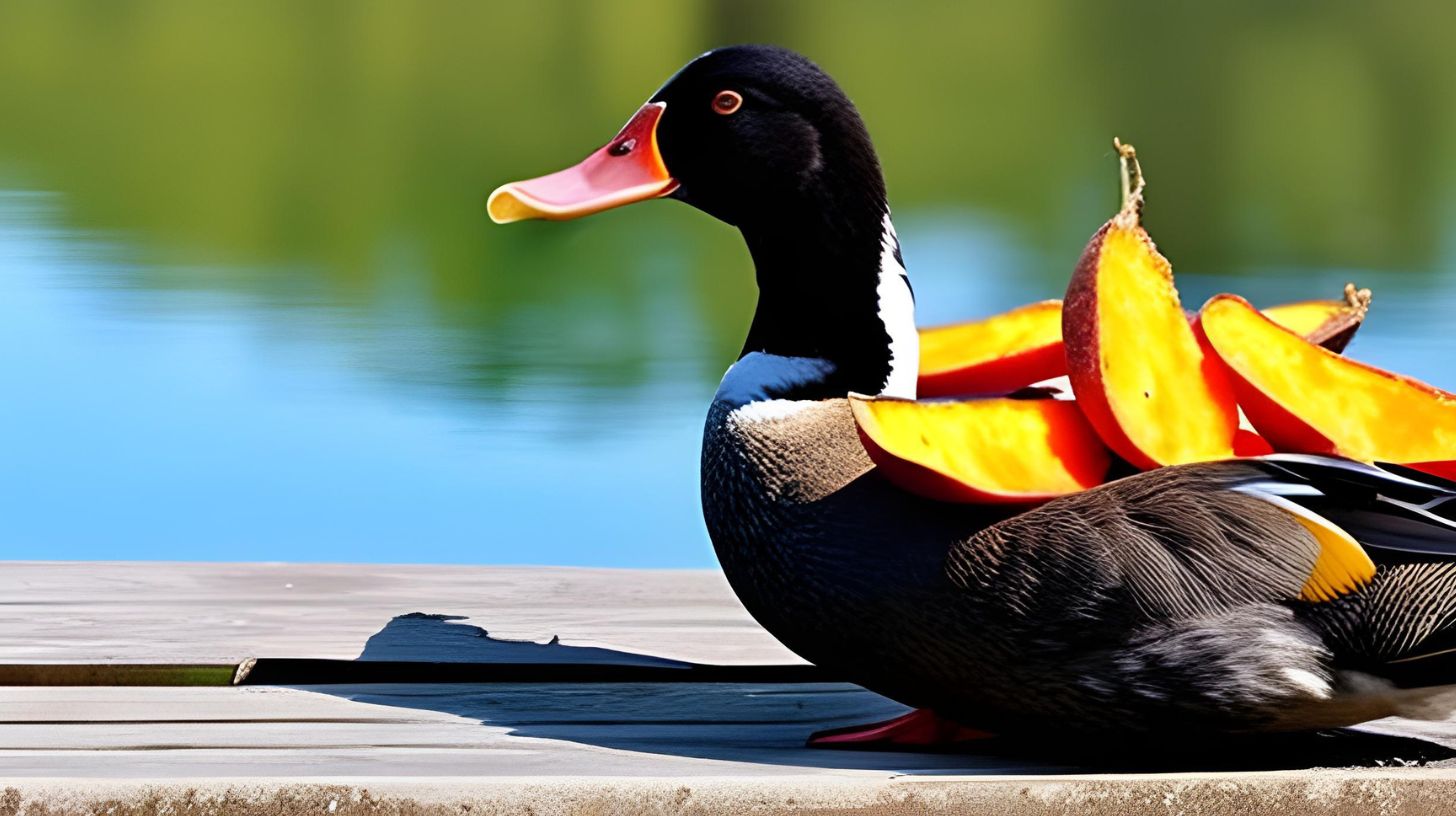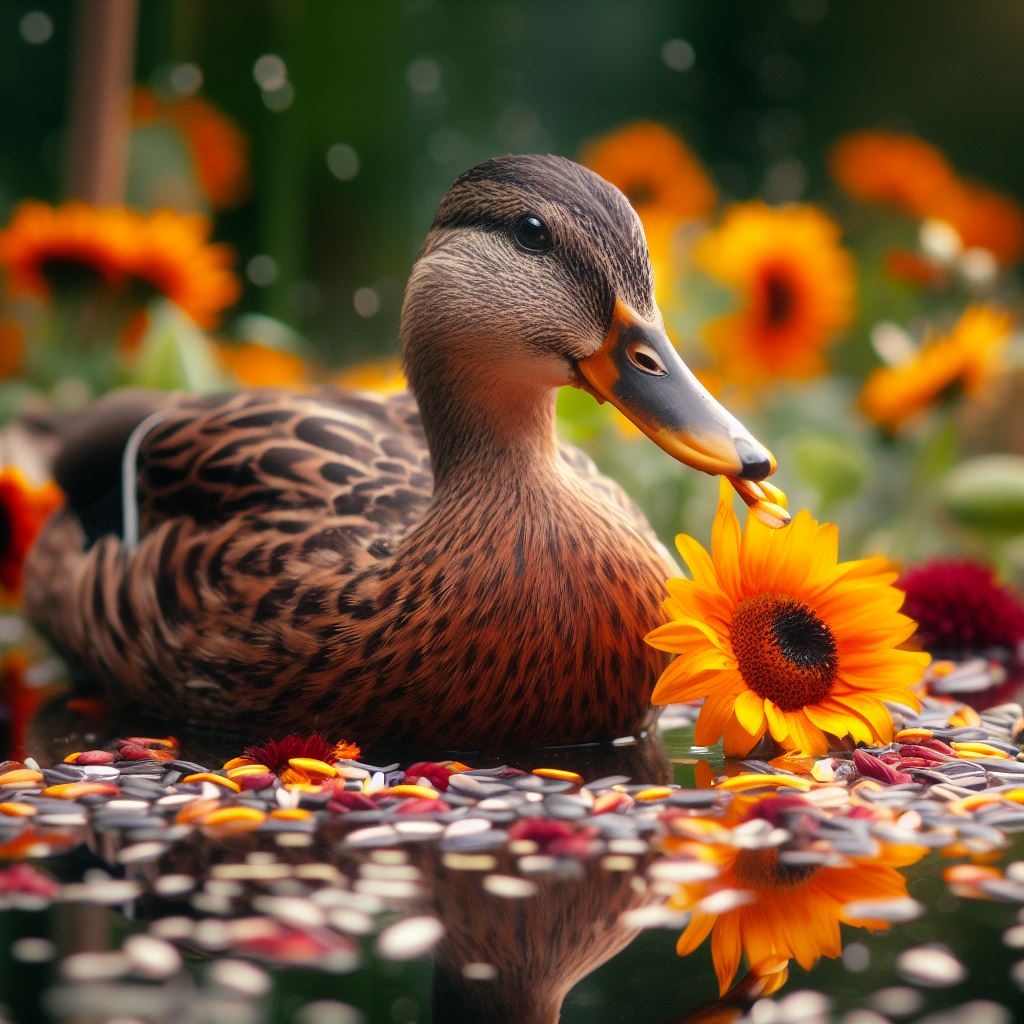Can Ducks Eat Aloe Vera? The Truth Revealed

Table of content:
Yes, ducks can eat aloe vera. The whole plant is edible for ducks, including the leaves, gel, and juice. Aloe vera is not toxic to birds, including ducks. However, it is important to note that Aloe vera can cause digestive problems for birds if consumed in large quantities.
Aloe vera is a succulent plant known for its healing properties. Its gel-filled leaves are commonly used to treat burns, wounds, and other skin conditions. Some duck owners wonder if aloe vera is a safe and healthy treat for their feathered friends.
Aloe vera gel contains active compounds such as polysaccharides, anthraquinones, lectins, mannans, enzymes, minerals, and vitamins. These compounds give aloe vera its antioxidant, antibacterial, antifungal, and anti-inflammatory properties.
When applied topically, aloe vera gel can provide cooling relief to irritated skin and support healing. When consumed, aloe vera juice and gel extracts provide internal benefits by boosting immunity, aiding digestion, and more.
Nutrients in Aloe Vera
The gel and juice from aloe vera leaves are rich in beneficial nutrients, including:
- Vitamins: Aloe vera contains vitamins A, C, E, B1, B2, B3, B6, B12, and folic acid.
- Minerals: Aloe provides minerals like calcium, sodium, iron, potassium, chromium, magnesium, manganese, copper, and zinc.
- Antioxidants: Aloe vera contains antioxidants such as beta-carotene and vitamins C and E. These help combat free radicals and oxidative stress.
- Enzymes: Aloe contains enzymes like amylase and lipase which aid in digestion.
- Polysaccharides: Aloe has acemannan and other polysaccharides that stimulate immune function.
- Anthraquinones: Aloe contains anthraquinone compounds that have laxative effects.
This diverse nutritional profile gives aloe vera many of its touted health benefits. However, not all of these nutrients may be suitable for ducks.
Are Aloe Vera Plants Toxic to Ducks?
Aloe vera plants contain saponins and anthraquinones. Saponins give the aloe plant a bitter, soapy taste that deters predators from consuming it. Anthraquinones have laxative effects that can cause diarrhea.
While small amounts of aloe vera gel or juice are generally safe for human consumption, higher doses can cause adverse effects like:
- Diarrhea
- Abdominal cramps
- Dehydration
- Electrolyte imbalance
Ducks are smaller and more sensitive than humans. The saponins and anthraquinones in aloe vera plants can irritate a duck’s gastrointestinal tract, leading to unpleasant symptoms.
 Can Ducks Have Aloe Vera Gel or Juice?
Can Ducks Have Aloe Vera Gel or Juice?
While aloe vera plants may be toxic, processed aloe vera gel and juice products don’t contain high enough concentrations of anthraquinones and saponins to harm ducks.
In small amounts, aloe vera gel and juice are unlikely to cause adverse effects in ducks. Specifically, giving ducks no more than 1-2 teaspoons of pure aloe vera gel occasionally is considered safe by many duck owners.
Aloe vera gel and juice provide immune-boosting antioxidants and polysaccharides. They support digestive health with enzymes and aid hydration and electrolyte balance. These benefits make aloe vera gel a refreshing treat for ducks on hot summer days.
When selecting an aloe vera gel, look for a 100% pure, food-grade product. Avoid gels with added dyes, fragrance, and excess sugars. Read the ingredients list carefully when choosing a product.
For aloe vera juice, select an option labeled for internal use and dilute it by half with water. This lowers the laxative anthraquinones to a duck-safe level. Monitor your duck’s droppings after initial consumption to check for diarrhea.
Benefits of Aloe Vera for Ducks
Here are some of the main benefits ducks can gain from occasionally consuming small amounts of aloe vera gel or diluted juice:
- Supports digestion – Enzymes like amylase aid breakdown of carbohydrates and improve nutrient absorption. Aloe vera may help relieve constipation.
- Boosts immunity – Polysaccharides like acemannan stimulate immune cell activity to fight disease. The antioxidants also support immune health.
- Soothes skin irritations – Topical application of pure aloe vera gel can provide relief from abrasions, dry skin, sunburn, and other minor skin issues in ducks.
- Hydrates ducks – The mucilaginous gel provides hydration on hot days and may support electrolyte balance.
- Eases inflammation – Compounds in aloe vera exhibit anti-inflammatory effects that can ease swelling, irritation, and discomfort.
- Supports digestion – Enzymes like amylase aid breakdown of carbohydrates and improve nutrient absorption. Aloe vera may help relieve constipation.
Used appropriately, aloe vera gel and diluted juice can provide ducks with useful health benefits.
How to Serve Aloe Vera to Ducks
When serving aloe vera gel or juice to ducks, follow these tips:
- Give only 100% pure, food-grade gel or juice labeled for consumption. Avoid products with added sugars or chemicals.
- For juice, dilute with equal parts water to minimize laxative effects.
- Limit treats to 1-2 teaspoons per duck no more than 2-3 times weekly.
- Monitor ducks for diarrhea or behavior changes indicating stomach upset after initial consumption.
- Mix gel/juice into water or food so ducks don’t associate your hand with treats.
- Avoid letting ducks graze directly on aloe vera plants, which may contain higher levels of toxic compounds.
- Introduce new foods slowly and watch for allergic reactions.
- Ensure ducks have access to fresh water at all times.
With these precautions, aloe vera gel and juice are generally considered safe for ducks in moderation. Cease serving them if any irritation occurs.
Healthy Treat Alternatives for Ducks
In addition to minimal amounts of aloe vera gel, ducks enjoy treats that provide extra nutrition without upsetting their digestive system. Here are some healthy snack options:
- Chopped grapes, blueberries, raspberries, blackberries
- Sliced strawberries, apples, melons, bananas
- Shredded greens like kale, spinach, lettuce
- Cooked, cooled sweet potato cubes
- Thawed frozen peas or corn
- Oats, rice, baked squash
- Chopped hardboiled eggs
- Duck treats fortified with vitamins and minerals
Vary treats to provide a balance of fruits, veggies, proteins, grains, and antioxidants. Most treats should make up no more than 5-10% of a duck’s daily food intake.
| Food | Maximum Portion | Frequency |
|---|---|---|
| Aloe Vera Gel/Juice | 1-2 tsp | 2-3x weekly |
| Grapes | 2-3 grapes | 2-3x weekly |
| Berries | 1-2 tsp | 3-4x weekly |
| Veggies | 1-2 tbsp | Daily |
| Grains | 1-2 tbsp | 2-3x weekly |
| Eggs | 1 tbsp | 2-3x weekly |
Signs of Aloe Vera Poisoning in Ducks
When fed appropriate amounts, aloe vera gel and diluted juice are considered non-toxic to ducks. However, overconsumption may cause:
- Diarrhea – Loose, watery droppings from too many anthraquinones acting as laxatives.
- Dehydration – Loss of fluids and electrolyte imbalance from diarrhea. Ducks may seem lethargic.
- Irritation – Redness, inflammation, or sores in the mouth or digestive tract from contact with the plant parts.
- Behavior changes – Lethargy, weakness, or loss of appetite from feeling ill.
If a duck exhibits these signs after consuming aloe vera, discontinue use. Call an avian vet if symptoms persist more than 24 hours or if the duck seems severely ill. Withhold food for several hours and provide electrolyte replenishment fluids.
Conclusion
While aloe vera plants contain saponins and anthraquinones that can be toxic to ducks, small amounts of pure aloe vera gel or diluted juice are considered safe.
In moderation, these products provide hydration and nutrients that support duck health and treat minor skin conditions. Exercise caution when first introducing aloe vera and watch for any signs of intolerance.
Welcome. I’m Adreena Shanum, the proud owner of this website, and I am incredibly passionate about animals, especially poultry. I founded adreenapets.com as a labor of love, stemming from my desire to share my knowledge and experiences with poultry enthusiasts worldwide.




